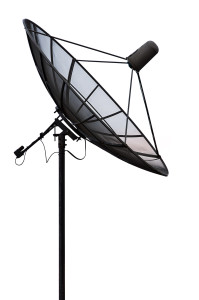March 13, 2015
 This Wednesday, the Federal Trade Commission (the “FTC or Commission”) sued satellite television service provider DirecTV, Inc. and its subsidiary (“DIRECTV”) in federal court in San Francisco. The Commission has accused DIRECTV of violating the FTC Act and the Restore Online Shoppers’ Confidence Act (“ROSCA”) with purportedly deceptive advertising and sales practices.
This Wednesday, the Federal Trade Commission (the “FTC or Commission”) sued satellite television service provider DirecTV, Inc. and its subsidiary (“DIRECTV”) in federal court in San Francisco. The Commission has accused DIRECTV of violating the FTC Act and the Restore Online Shoppers’ Confidence Act (“ROSCA”) with purportedly deceptive advertising and sales practices.
Why is DIRECTV’s television advertising getting such bad reception from the FTC?
DIRECTV’s Satellite Package Advertising
DIRECTV provides direct-to-home digital television service to 20.3 million subscribers in the United States. Its various programming packages, which are advertised through a variety of media, including television, print, mail and the Internet, are typically offered with a mandatory two-year term. Normally, customers who cancel their subscriptions early are required to pay a cancellation fee of $20 for each month remaining on their contracts.
DIRECTV’s subscription packages allegedly charged a lower monthly rate during the first year and a much higher rate (that increased by as much as 70%) during year two. According to the FTC, DIRECTV also advertised that subscribers would receive additional premium channels, such as HBO, Cinemax and Showtime, free of charge for a limited period of time. Afterward, consumers were purportedly required to affirmatively cancel these premium channels before the end of the initial period to avoid monthly charges. According to the FTC’s complaint, those who took no action or otherwise remained silent were charged additional fees of around $48 per month.
FTC Deceptive Advertising and ROSCA Lawsuit
In Wednesday’s complaint, the FTC alleged that DIRECTV’s marketing and sales strategies were unfair or deceptive. The Commission has traditionally considered deceptive practices to include misrepresentations or deceptive omissions of material fact.
According to the FTC, DIRECTV’s twelve-month programming package failed to adequately disclose the mandatory two-year agreement period and cancellation fee, as well as its fee hike during year two of service. Further, the Commission contends that DIRECTV violated the FTC Act by offering free premium channels for approximately three months, without giving consumers sufficient notice that they would be automatically enrolled in a premium service plan after the trial period ended.
The FTC has also alleged that DIRECTV violated ROSCA, a relatively new federal regulation first enforced by the Commission last October. ROSCA generally prohibits a marketer from selling goods or services online through a “negative option feature” – a deal that considers silence as consumers’ acceptance of the offer. Negative option features are permissible only if the seller: (1) clearly and conspicuously discloses all material terms associated with the transaction; (2) obtains consumer express informed consent; and (3) provides a simple mechanism to stop recurring charges. The FTC’s complaint alleges that DIRECTV’s premium channel subscription service amounts to a negative option feature that fails to adequately disclose all material terms associated with the service. Additionally, the Commission claims that DIRECTV did not obtain the express informed consent of its customers before charging them for access to premium channels.
The FTC has asked the court to: (1) redress consumer injuries by rescinding their contracts and/or refunding their payments; and (2) permanently ban DIRECTV from engaging in the allegedly illegal conduct in the future.
Monitor Your Marketing and Sales Practices
As evidenced by this lawsuit, the FTC continues to take legal action against media companies for claims made in connection with their advertising and billing practices. It is critical that service providers and marketers remain abreast of ever-evolving regulations in the sales and marketing space, or risk bearing substantial liability.
If you are a media service provider, a marketer of such services, or if you have been served with legal process relating to your marketing practices, please e-mail us at info@kleinmoynihan.com or call us at (212) 246-0900.
The material contained herein is provided for informational purposes only and is not legal advice, nor is it a substitute for obtaining legal advice from an attorney. Each situation is unique, and you should not act or rely on any information contained herein without seeking the advice of an experienced attorney.
Attorney Advertising
Related Blog Posts:
DIRECTV Named in Multi-Million Dollar Class-Action TCPA Lawsuit



